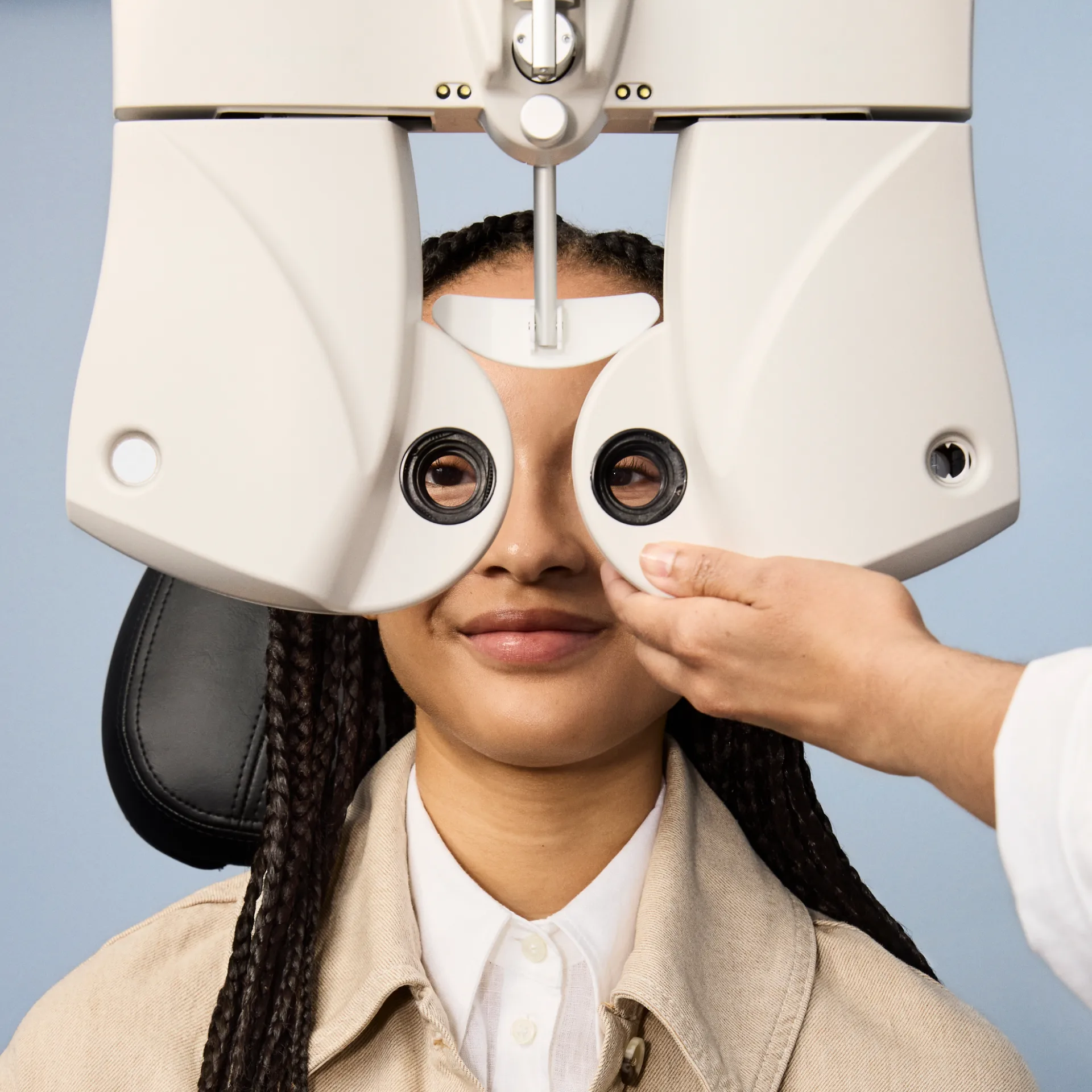Why Choose Warby Parker for Your Eye Exam?
We’re here to make quality, holistic vision care accessible and convenient—that’s why most Warby Parker locations offer comprehensive eye exams, including an eye health check and prescriptions for glasses and contacts.
Book an Appointment →We recommend an annual exam to help evaluate your vision, examine your eye health, and screen for other health issues. Plus, it gives you an opportunity to ask an expert optometrist any eye-related questions.
Why Regular Eye Exams Are Important
Our eyes change over time, and many vision problems develop gradually. Sometimes, the early signs of an issue might not be noticeable, especially for those who are in good health and have no major symptoms. Regular eye exams can help identify problems early, allowing for timely intervention. Here are some key reasons why regular eye exams are so important:
1. Early Detection of Vision Problems
The most obvious reason for eye exams is to detect and correct vision problems. Many conditions, such as nearsightedness (myopia), farsightedness (hyperopia), and astigmatism, can be easily diagnosed with an eye exam and treated with corrective lenses. However, certain eye conditions like glaucoma, macular degeneration, and diabetic retinopathy may not present symptoms until they are in advanced stages. Early detection through regular eye exams can lead to better outcomes by catching these conditions while they are still manageable.
2. Detecting Systemic Health Conditions
Eyes can reveal important signs of systemic health issues. For example, an optometrist may notice blood vessel changes in the eyes that suggest high blood pressure or diabetes. Eye exams can also reveal signs of neurological problems, thyroid disease, and tumors. For this reason, regular eye exams are a vital part of your overall health checkup, providing clues to underlying health conditions before they become more serious.
3. Maintaining Healthy Vision
As we age, our eyesight naturally changes. Presbyopia, a condition that affects near vision, typically begins to occur after the age of 40. Regular eye exams can ensure that any age-related changes to your vision are addressed and corrected. Keeping up with regular eye exams allows your optometrist to monitor changes in your vision and recommend appropriate adjustments to your prescription.
4. Improving Quality of Life
Good vision enhances quality of life by enabling individuals to perform everyday activities with ease and comfort. Whether it's reading, driving, or using digital devices, clear vision is essential for daily tasks. Regular eye exams ensure that your prescription is up-to-date, preventing eyestrain, headaches, and the frustration of poor vision.
